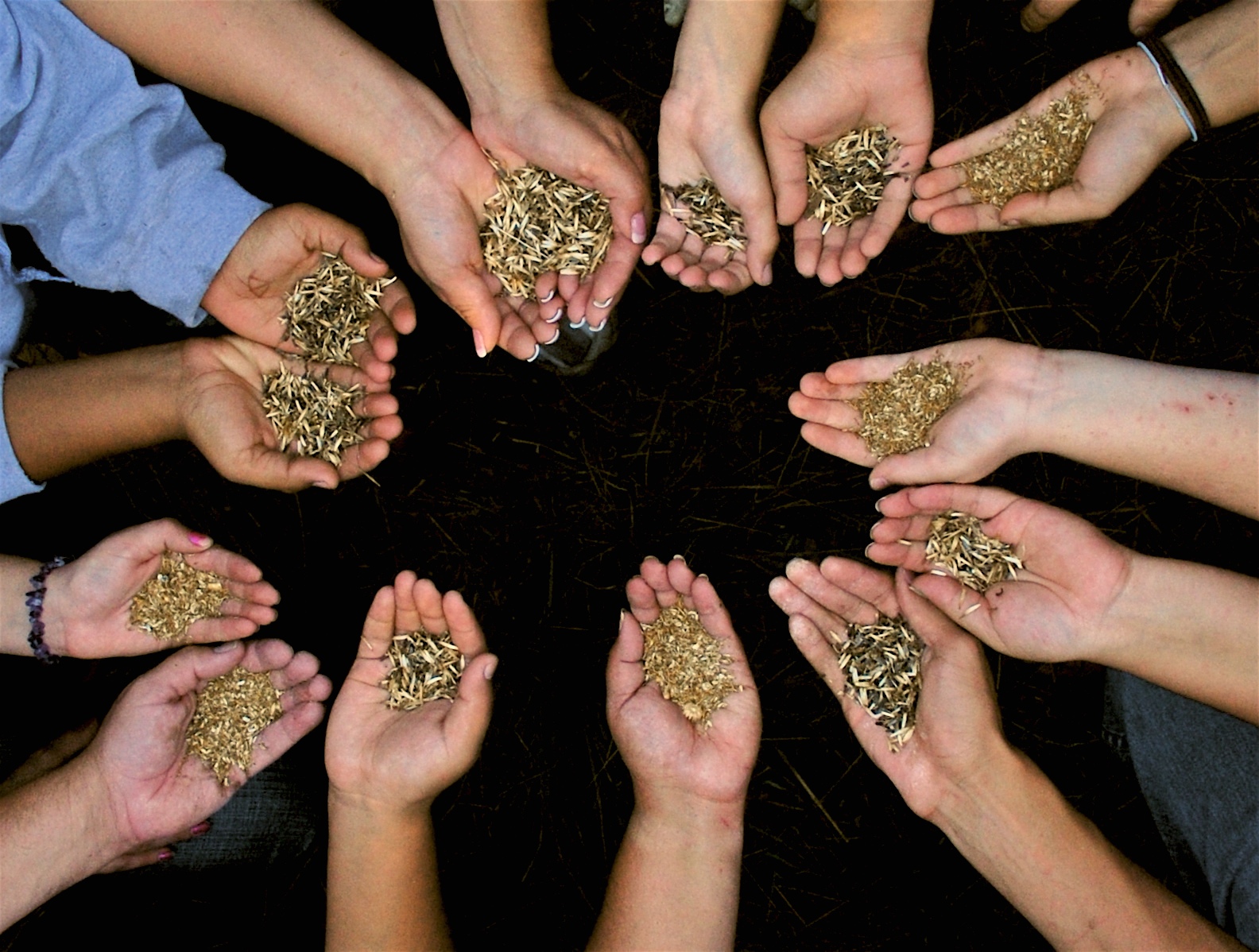The OAEC Permaculture Design Program engages in projects that build community resilience at local and regional scales. We prioritize collaborating with communities that have been and will be hit first and worst by climate chaos, including urban and rural social and economic justice organizations partnering with impacted communities, educational institutions, sovereign tribal peoples, and those who steward critical ecosystems. We use a Resilient Community Design methodology to empower these communities to design their own solutions for ecological regeneration and personal and community dignity, justice, and well-being.
The projects described below range from foundation-funded collaborations, fee-for-service consultations, or local community service projects that our Permaculture Design Certification students help to design and implement. The PDC is always looking for community groups who would benefit from a donated permaculture site design. If your group has secured land and is prepared to implement a holistic ecological design, please contact Kendall Dunnigan to see if we are a good fit for collaboration.
Community Action Marin
2023 – Present
Community Action Marin (CAM), a social service non-profit organization based in Marin County, partnered with OAEC to design and implement an organic vegetable garden at the Old Gallinas Children’s Center and to train Spanish-speaking parent clients in biointensive organic gardening.
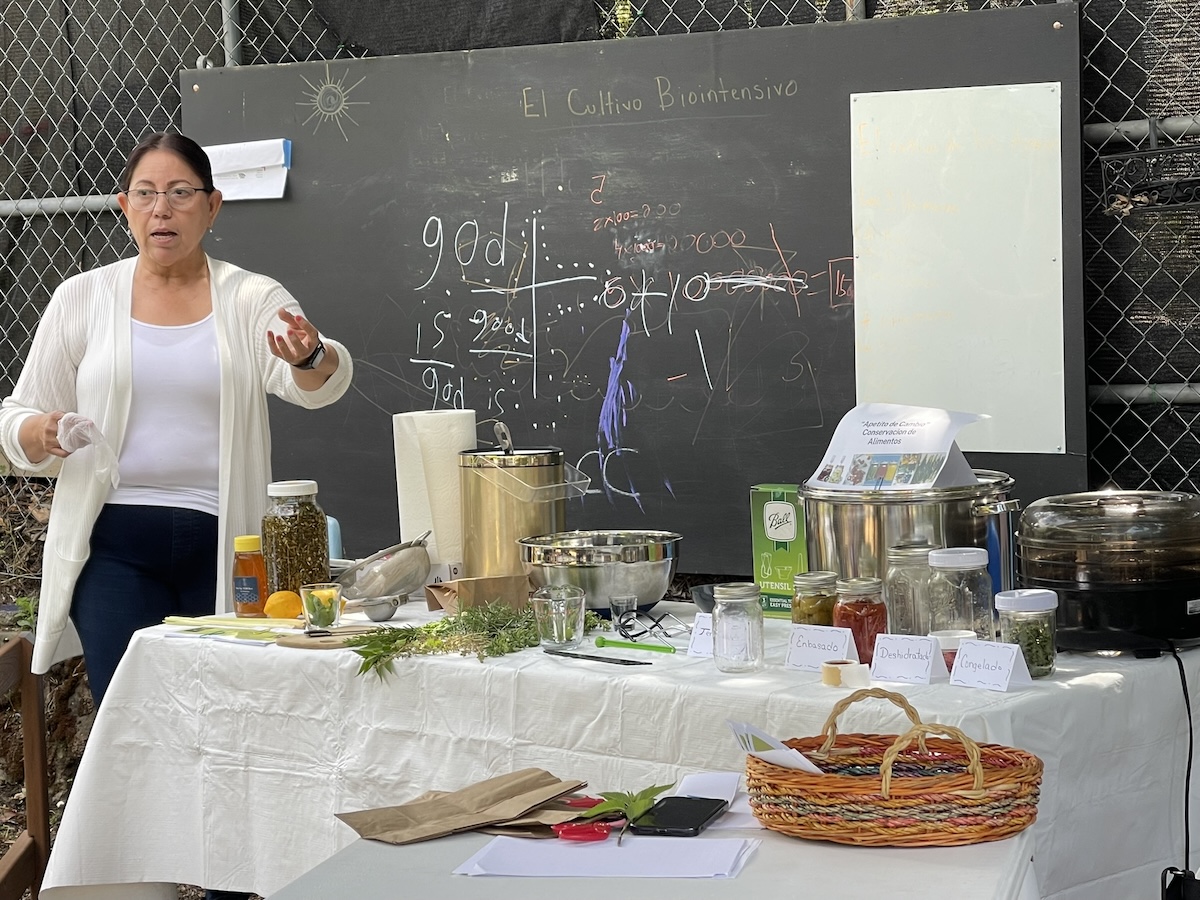
Central California Environmental Justice Network
2024
OAEC facilitated a Spanish permaculture design training for land leaders of the Central California Environmental Justice Network (CCEJN) in the Central Valley. CCEJN is working to secure farmland for farm worker communities to increase availability of healthy food, offset food costs, and provide community gathering spaces.
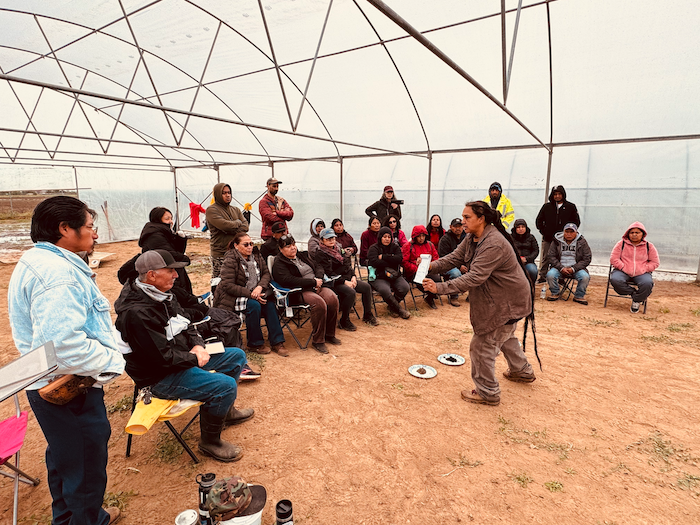
The Moskitia
2017 – Present
Protecting the Moskitia Jungle and the global climate by uplifting indigenous rights and advancing fair trade
The Moskitia is the second largest tropical forest in the Americas after the Amazon that has been deforested by 30% in the last 15 years. At this rate, the Moskitia and the indigenous communities who live there will be gone in two decades. The Moskitia is an indigenous-led international coalition that advances forest conservation and the rights of the indigenous and afro-descendent peoples of eastern Nicaragua and Honduras and is part of the Five Forest Alliance.
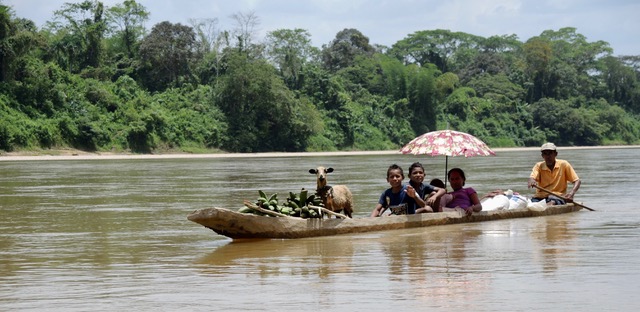
Five Forests Alliance
2018 – Present
Protecting the Five Great Mesoamerican Forests, Indigenous Rights, and our Global Climate by Addressing the Drivers of Deforestation
Five Forests is an international alliance working to protect the five majestic Mesoamerican forests – the Selva Maya (Mexico/Guatemala), Moskitia (Honduras/Nicaragua), Indio-Maiz/Tortuguero (Nicaragua/Costa Rica), La Amistad (Costa Rica), Darien (Panama). Combined these forests are the size of Costa Rica and second in size and importance in the Americas only to the Amazon.
Five Forests seeks to bring the importance of the ecological systems and the indigenous people who tend them to the public’s attention to protect these forests indefinitely.
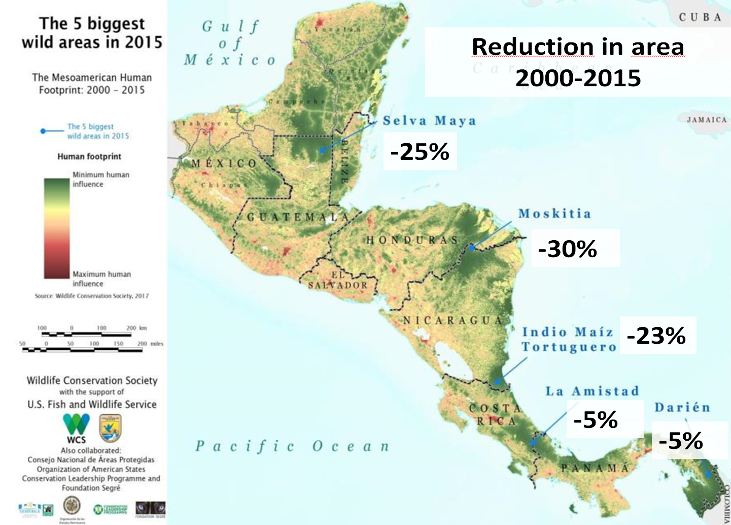
Saint Stephens Church, Sebastopol CA
2016-present
St Steven’s Episcopal Church in Sebastopol CA is part of a growing movement of faith communities that are centralizing land stewardship as a core expression of their mission. Their 4.5 acre site is located within one of the world’s six Mediterranean climate biodiversity hotspots, is in the Santa Rosa Basin ground water recharge zone, and is composed of the famous gold ridge loam soil. After receiving design donations from students in the OAEC Permaculture Design Certification course, the community was inspired to create their own permaculture site design that they are now implementing in partnership with OAEC. The vision is to produce food for humans and other organisms, protect and recharge water and soil, and increase the area’s biodiversity, which will compliment the church services, free meals program, food pantry, seed garden and storage, yoga, singing, and AA meeting space. The design includes a 7-circuit labyrinth, a low-maintenance/low-water 7-layer food forest with year-round food and flower harvest, native pollinator garden, olive orchard, cob benches, roof water catchment, outdoor gathering and event area, and a welcome zone. The campus is a designated dark space (no path lights) and open to all.
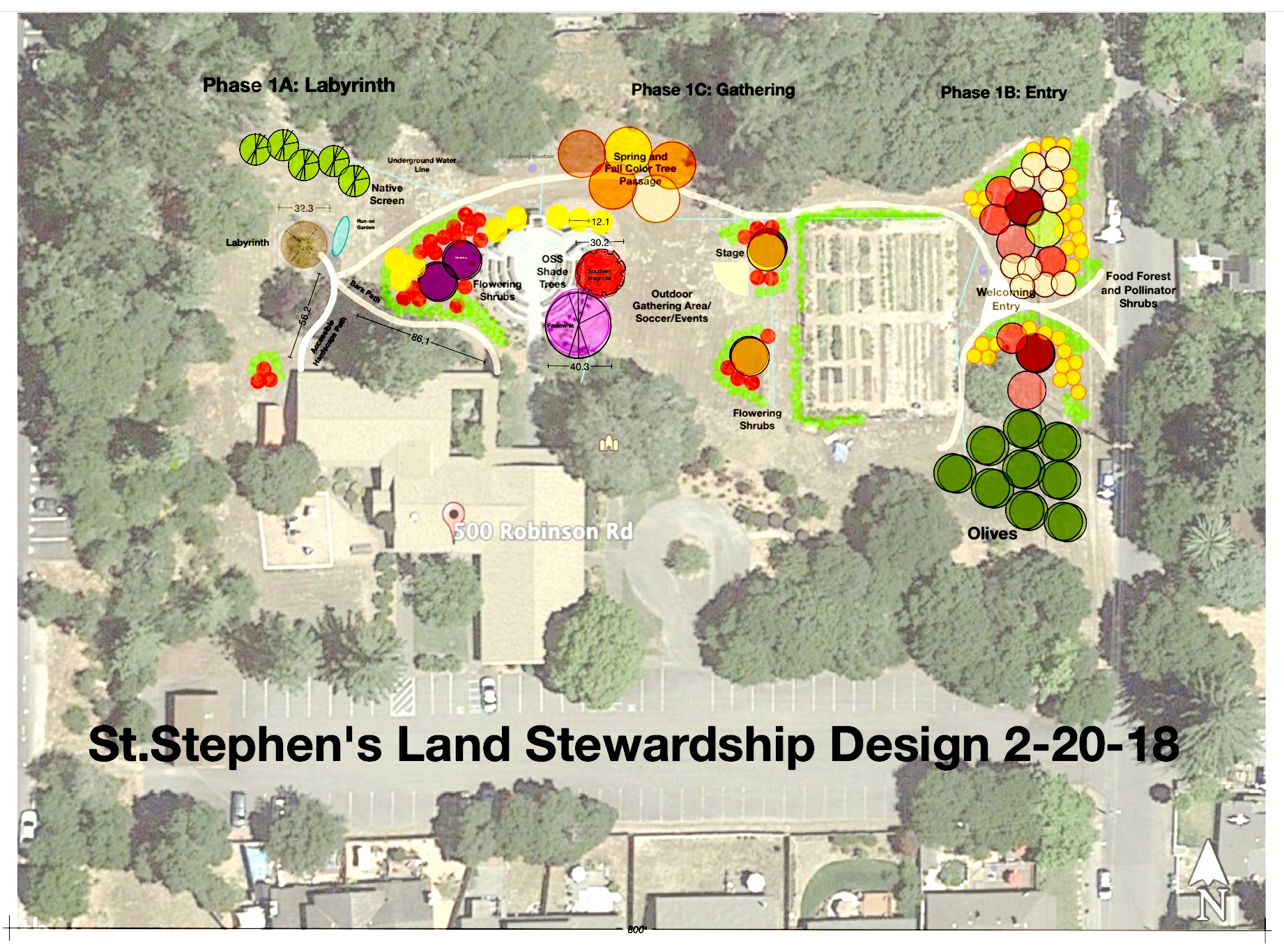
School Garden Teacher Training
1996 – 2019
From 1996-2019, OAEC trained over 1,250 educators from 300 schools in launching and sustaining School Garden programs throughout California and nationally. Over 75,000 students directly benefited from these programs annually.
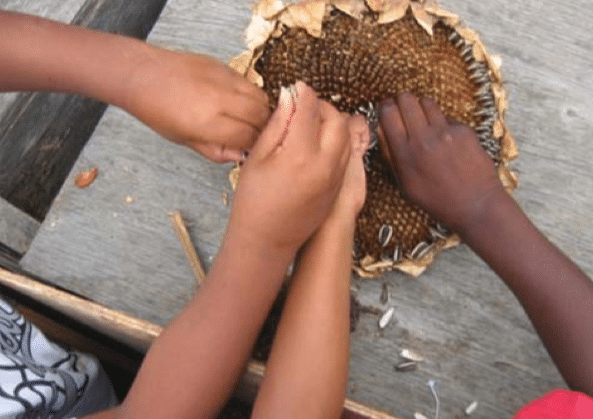
Northwest Prep School, Santa Rosa CA
2016-2021
NWP is a public 7-12 grade school in northwest Santa Rosa with a diverse student body and innovative trans-disciplinary project based learning approach. All courses revolve around a chosen inquiry theme such as water, immigration, elections, etc. The school covers 8-acres and is home to five different educational programs including pre-school, special ed, elementary and high school. The food forest is the basis for the Seed to Table course in which students learned to grow and cook food as well as harvest for donation to local shelters.
OAEC’s Permaculture Design Course participants help design specific campus areas for the on-site NWP student groups who install them. Learn more about our Resilient Schools Program>
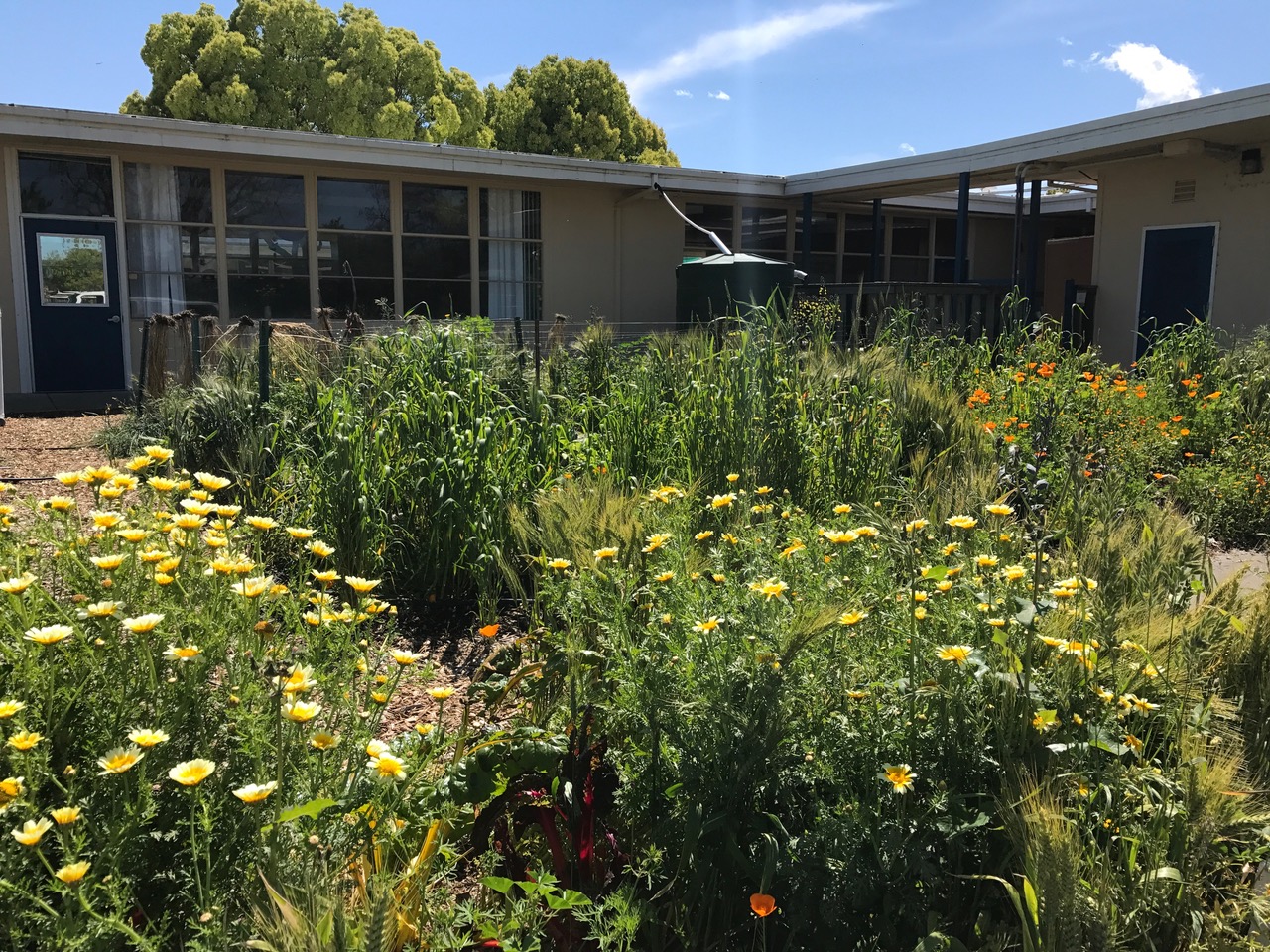
Haiti Seed Project
May 2017
In early October 2016, Haiti was devastated by Hurricane Matthew which destroyed nearly 80% of the Haitian seed supply. MPP (Peasant Movement of Papaye or Mouvement Peyisan Papay in Haitian Creole) is the oldest, largest and among the most impactful local peasant movements in Haiti. Following Hurricane Matthew, MPP put out a call for seed support and OAEC responded by raising money for MPP to purchase nearly 4 tons of organic, open-pollinated seeds from Haitian peasant farmers in less affected regions of the country.
Pictured here is an important bean variety on the island called Pwa Kongo (or Congo Bean), likely brought over to Haiti by enslaved Africans hundreds of years ago. photo by Cooper Freeman
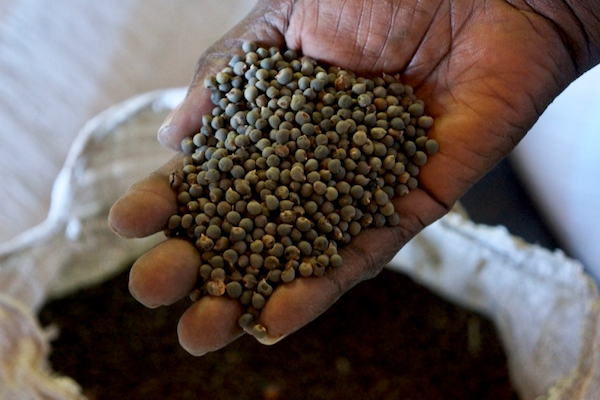
Evolutionary Wheat Breeding Project
2016-2018
What will the climate be like 20 years from now?
How can we breed food crops that will thrive and adapt to change?
With an increasingly unstable climate, continued collapse of agricultural biodiversity, and the seed supply more and more controlled by giant corporations, OAEC is mixing and planting together over 2,000 varieties of bread wheat from all over the world, in collaboration with local Sonoma County farms and gardens. This process is called “Evolutionary Plant Breeding,” with a goal of creating unique, place-adapted, resilient mixtures of our most important food crops, to increase and expand agricultural biodiversity, put seed breeding back into the hands of farmers and gardeners, and create a seed supply that can thrive in a changing climate.
Pictured here: Shone Farm Manager, Leonard Diggs, standing next to a plot of the wheat mixture grown out in 2018 at Santa Rosa Junior College.
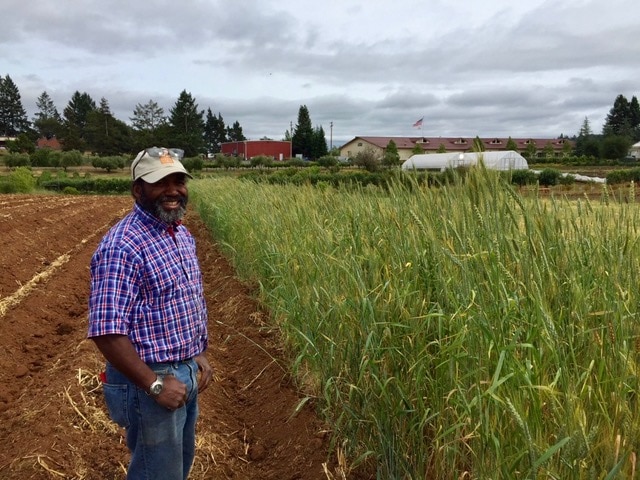
Hayward City Hall Garden
April 2017
On April 15, 2017, Keep Hayward Clean and Green Task Force (KHCG TF), Earth Team, City of Hayward’s Landscape Department, Occidental Arts & Ecology Center and the local and surrounding community members came together for a water saving extravaganza. Spearheaded by Jen Topper from Earth Team, more than 85 volunteers converted a 5,000 sq. ft lawn into a water-wise, Bay-friendly garden outside of Hayward City Hall. OAEC Permaculture Program Co-Director Kendall Dunnigan created the design and helped to supervise the installation.
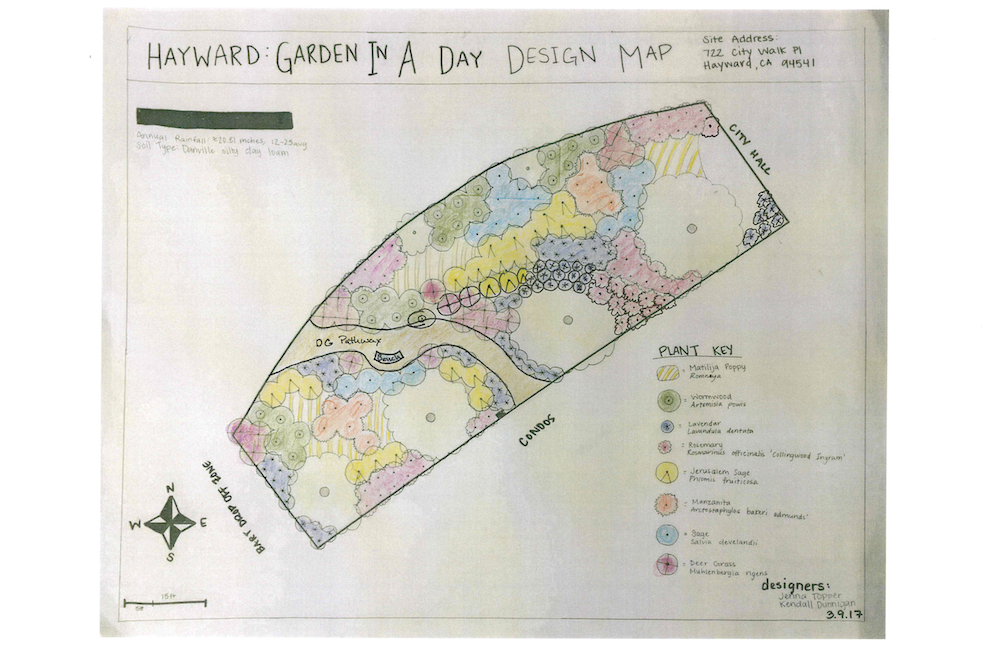
SOIL Haiti
SOIL (Sustainable Organic Integrated Livelihoods) is a nonprofit organization based in Haiti that works to transform human waste into a resource by providing ecological sanitation and jobs for underserved communities lacking proper infrastructure. OAEC trained several SOIL staff members in a PDC at the International Permaculture Convergence (IPC11) in Cuba, and facilitated a collective permaculture design process with the SOIL staff in 2014 to design the SOIL ecology center and offices in the North of Haiti.
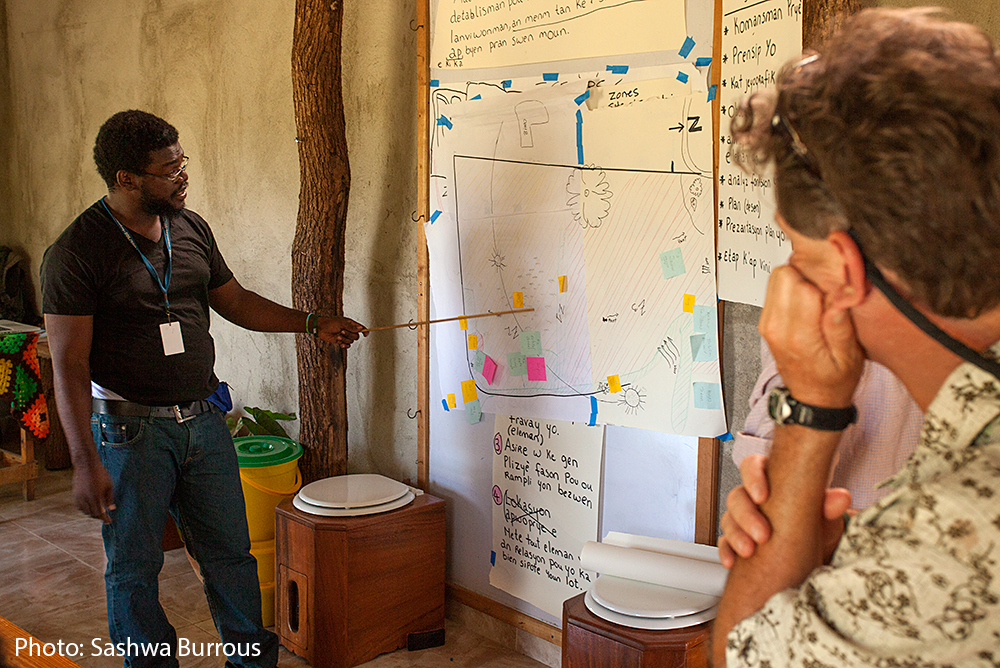
Permaculture for the People
2010 – Present
Permaculture for the people is a community land design workshop for groups who have gained access to land and want to improve the land and offer programs for a larger community.
One of the most powerful instruments of oppression has been to tear people away from the land. From the perspective of healing and rebuilding dispossessed communities comes Liberation Permaculture – a read of Permaculture that is about self-reclamation, cultural survival and independence. A direct challenge to the current social, economic and political system, it asserts that people have the right to draw upon traditional methods of living in balance with their environment to design for community resilience and regain social, political and economic independence. This concept inspired a training program called “Permaculture for the People,” developed by OAEC and the Movement Generation Justice & Ecology Project (MG).
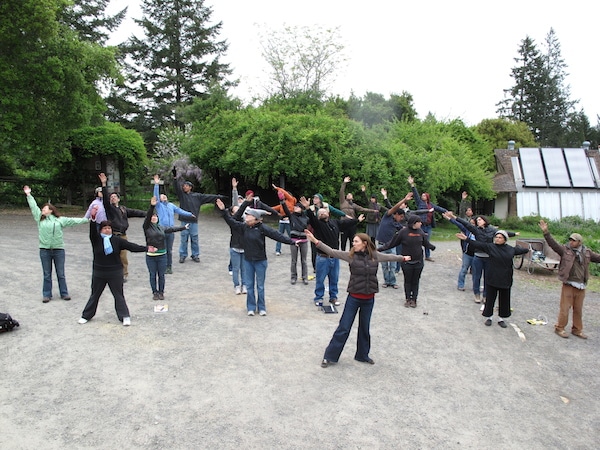
Casa Grande High School
The Permaculture Design program collaborated with the Case Grande High School in Petaluma to train 120 high school students (juniors and seniors) in permaculture design. The students then designed a 1-acre area in the middle of their campus to be an outdoor learning environment that included edible gardens, an outdoor kitchen, a recreational area, and an outdoor theater. The site and its activities were designed to connect to classroom activities of all subjects. OAEC staff facilitated this community permaculture design process.
Drawing by Timo Granzotti.
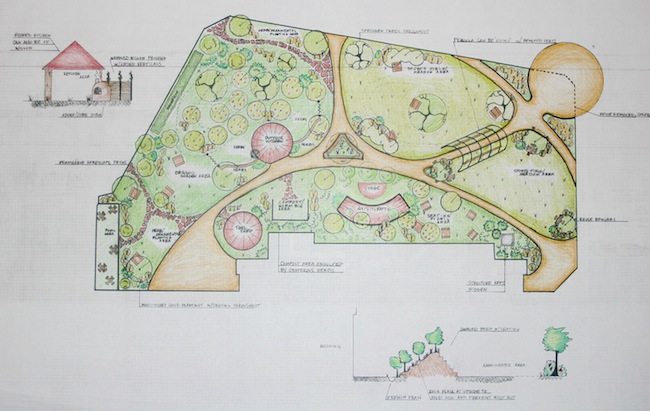
Federated Indians Of Graton Rancheria
2007 – Present
Since 2007, OAEC has forged a deep relationship with the Federated Indians of Graton Rancheria (FIGR), the local Coast Miwok and Southern Pomo tribe whose ancestral homelands include the 80 acres in western Sonoma County upon which OAEC resides. OAEC and FIGR have collaborated to explore principles of ecology, traditional ecological knowledge, and native flora and fauna in our Wildlands Preserve with the goal of both organizations becoming better practitioners of cultural regeneration and biological restoration.
Over the past years, OAEC has supported FIGR in their work by: deepening tribal family and youth bio-cultural TEK practices by hosting FIGR’s family camp as well as organic gardening and nutrition classes on the land at OAEC; facilitating 200 tribal citizens in the development of a comprehensive Master Plan for their 170-acre tribal trust land in Rohnert Park, including wetlands restoration and the development of a tribal community garden using Resilient Community Design; designing and installing organic gardens at FIGR tribal offices; and facilitating a planning process with FIGR and the parks system at Tolay Regional Park, a 1,800 acre site that is one of the most sacred places in the Tribes ancestral lands.
